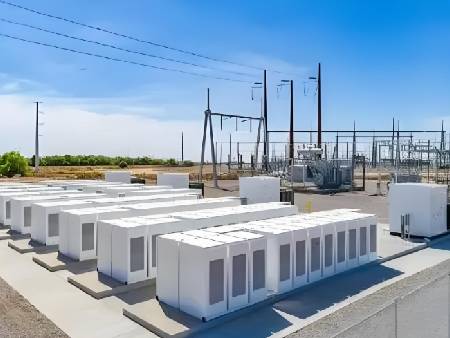
The evaluation of the benefits of energy storage power stations usually requires consideration of multiple factors, including investment costs, operating costs, electricity prices, energy markets, performance and efficiency of energy storage systems, etc. The following are the general steps for evaluating the benefits of energy storage power plants:
1. Determine investment costs: including the cost of purchasing energy storage equipment, installation and commissioning costs, as well as grid connection costs.
2. Estimate operating costs, including maintenance and upkeep costs, operational management costs, and power loss expenses.
3. Analyze electricity prices and energy markets: Analyze local electricity price fluctuations, differences between peak and flat electricity prices, as well as energy market rules, to determine the electricity price situation for different time periods.
4. Evaluate the performance and efficiency of energy storage systems: Consider the charging and discharging efficiency, cycle life, capacity, and other parameters of the energy storage system to evaluate its performance and efficiency.
5. Conduct revenue simulation and evaluation: Based on the above data and parameters, conduct revenue simulation and evaluation to estimate the annual revenue, investment payback period, and other indicators of energy storage power stations.
A simple financial indicator method can be used: this is a commonly used method for calculating returns, with the most critical indicators being the internal rate of return and net present value. By predicting the revenue and expenses of energy storage power plants and selecting an appropriate discount rate, the rate of return and net present value can be calculated to evaluate the potential benefits of energy storage power plants.
The actual operation simulation method can be applied: this method is based on actual operation data to simulate and evaluate the actual operation effect and benefits of energy storage power stations. By simulating different market conditions, the benefits of energy storage power stations in different scenarios can be calculated, including market participation benefits and electricity price benefits.

To maximize the operating revenue of energy storage power stations, the following aspects can be considered:
1. Optimize system design: Reasonably design the structure and parameters of the energy storage system, select efficient energy storage technologies and equipment, and improve system performance and efficiency.
2. Flexible operation strategy: Based on market electricity prices, demand side conditions, and system performance, flexibly adjust the operation strategy of energy storage systems, such as charging and discharging operations during high electricity price periods.
3. Participate in the energy market: Connect energy storage power stations to the energy market, participate in market activities such as auxiliary services, peak shaving, and valley filling, and obtain more profits.
4. Combining with renewable energy: Combining energy storage stations with renewable energy generation projects to improve electricity utilization efficiency and market competitiveness.
5. Improving system efficiency: By optimizing equipment operation, reducing power loss, and improving system efficiency, operating costs can be reduced and revenue can be increased.
6. Make reasonable investment decisions: Before investing in energy storage power stations, it is necessary to conduct in-depth research on the local electricity market, analyze market trends and potential returns. At the same time, taking into account factors such as the construction cost, technological maturity, and operation and maintenance costs of energy storage power stations, a reasonable investment plan should be formulated.
7. Implement scientific operational management: Develop detailed operational plans and make flexible adjustments based on market conditions and personal conditions. Strengthen equipment maintenance and safety management to ensure the stable operation of energy storage power stations. At the same time, pay attention to market trends and adjust charging and discharging strategies in a timely manner to maximize the utilization of the price difference between peak and low electricity consumption.
8. Strengthen marketing promotion and partnership building: Through targeted marketing strategies, increase the visibility and recognition of energy storage power stations. Establish cooperative relationships with energy enterprises and research institutions to jointly promote the development and market application of energy storage technology. In addition, actively seek government support and strive for more policy incentives and financial support.
To comprehensively consider the profit evaluation and maximization operation of energy storage power station, it is necessary to formulate reasonable investment decisions, implement scientific operational management, and strengthen marketing promotion and partnership building measures to effectively improve the revenue and competitiveness of energy storage power stations. In practical applications, flexible adjustments need to be made based on local market conditions, policies and regulations, and system characteristics to improve the economic benefits and operational level of energy storage power stations.